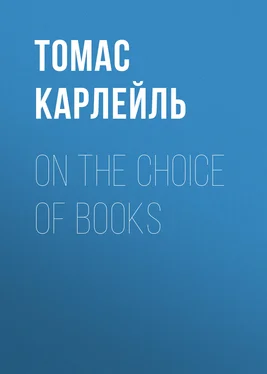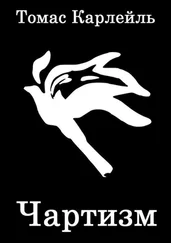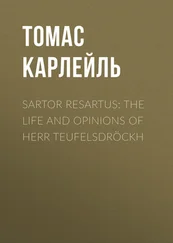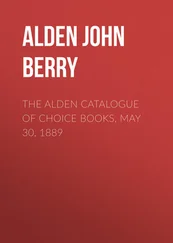Томас Карлейль - On the Choice of Books
Здесь есть возможность читать онлайн «Томас Карлейль - On the Choice of Books» — ознакомительный отрывок электронной книги совершенно бесплатно, а после прочтения отрывка купить полную версию. В некоторых случаях можно слушать аудио, скачать через торрент в формате fb2 и присутствует краткое содержание. Жанр: foreign_prose, Культурология, literature_19, foreign_edu, foreign_antique, на английском языке. Описание произведения, (предисловие) а так же отзывы посетителей доступны на портале библиотеки ЛибКат.
- Название:On the Choice of Books
- Автор:
- Жанр:
- Год:неизвестен
- ISBN:нет данных
- Рейтинг книги:3 / 5. Голосов: 1
-
Избранное:Добавить в избранное
- Отзывы:
-
Ваша оценка:
- 60
- 1
- 2
- 3
- 4
- 5
On the Choice of Books: краткое содержание, описание и аннотация
Предлагаем к чтению аннотацию, описание, краткое содержание или предисловие (зависит от того, что написал сам автор книги «On the Choice of Books»). Если вы не нашли необходимую информацию о книге — напишите в комментариях, мы постараемся отыскать её.
On the Choice of Books — читать онлайн ознакомительный отрывок
Ниже представлен текст книги, разбитый по страницам. Система сохранения места последней прочитанной страницы, позволяет с удобством читать онлайн бесплатно книгу «On the Choice of Books», без необходимости каждый раз заново искать на чём Вы остановились. Поставьте закладку, и сможете в любой момент перейти на страницу, на которой закончили чтение.
Интервал:
Закладка:
The above letter was printed by Goethe himself, in his Preface to a German transition of Carlyle's "Life of Schiller," published at Frankfort in 1830. Other pleasant records of the intercourse between them exist in the shape of sundry graceful copies of verses addressed by Goethe to Mrs. Carlyle, which will be found in the collection of his poems.
Carlyle had now fairly started as an original writer. From the lonely farm of Craigenputtoch went forth the brilliant series of Essays contributed to the Edinburgh, Westminster, and Foreign Reviews, and to Fraser's Magazine, which were not long in gaining for him a literary reputation in both hemispheres. To this lonely farm came one day in August, 1833, armed with a letter of introduction, a visitor from the other side of the Atlantic: a young American, then unknown to fame, by name Ralph Waldo Emerson. The meeting of these two remarkable men was thus described by the younger of them, many years afterwards:—
"I came from Glasgow to Dumfries, and being intent on delivering a letter which I had brought from Rome, inquired for Craigenputtoch. It was a farm in Nithsdale, in the parish of Dunscore, sixteen miles distant. No public coach passed near it, so I took a private carriage from the inn. I found the house amid desolate heathery hills, where the lonely scholar nourished his mighty heart. Carlyle was a man from his youth, an author who did not need to hide from his readers, and as absolute a man of the world, unknown and exiled on that hill-farm, as if holding on his own terms what is best in London. He was tall and gaunt, with a cliff-like brow, self-possessed, and holding his extraordinary powers of conversation in easy command; clinging to his northern accent with evident relish; full of lively anecdote, and with a streaming humour, which floated everything he looked upon. His talk playfully exalting the familiar objects, put the companion at once into an acquaintance with his Lars and Lemurs, and it was very pleasant to learn what was predestined to be a pretty mythology. Few were the objects and lonely the man, 'not a person to speak to within sixteen miles except the minister of Dunscore; so that books inevitably made his topics.
"He had names of his own for all the matters familiar to his discourse. 'Blackwood's' was the 'sand magazine;' 'Fraser's' nearer approach to possibility of life was the 'mud magazine;' a piece of road near by that marked some failed enterprise was 'the grave of the last sixpence.' When too much praise of any genius annoyed him, he professed hugely to admire the talent shewn by his pig. He had spent much time and contrivance in confining the poor beast to one enclosure in his pen, but pig, by great strokes of judgment, had found out how to let a board down, and had foiled him. For all that, he still thought man the most plastic little fellow in the planet, and he liked Nero's death, 'Qualis artifex pereo!' better than most history. He worships a man that will manifest any truth to him. At one time he had inquired and read a good deal about America. Landor's principle was mere rebellion, and that he feared was the American principle. The best thing he knew of that country was, that in it a man can have meat for his labour. He had read in Stewart's book, that when he inquired in a New York hotel for the Boots, he had been shown across the street, and had found Mungo in his own house dining on roast turkey.
"We talked of books. Plato he does not read, and he disparaged Socrates; and, when pressed, persisted in making Mirabeau a hero. Gibbon he called the splendid bridge from the old world to the new. His own reading had been multifarious. Tristram Shandy was one of his first books after Robinson Crusoe, and Robertson's America an early favourite. Rousseau's Confessions had discovered to him that he was not a dunce; and it was now ten years since he had learned German, by the advice of a man who told him he would find in that language what he wanted.
"He took despairing or satirical views of literature at this moment; recounted the incredible sums paid in one year by the great booksellers for puffing. Hence it comes that no newspaper is trusted now, no books are bought, and the booksellers are on the eve of bankruptcy.
"He still returned to English pauperism, the crowded country, the selfish abdication by public men of all that public persons should perform. 'Government should direct poor men what to do. Poor Irish folk come wandering over these moors. My dame makes it a rule to give to every son of Adam bread to eat, and supplies his wants to the next house. But here are thousands of acres which might give them all meat, and nobody to bid these poor Irish go to the moor and till it. They burned the stacks, and so found a way to force the rich people to attend to them.'
"We went out to walk over long hills, and looked at Criffel, then without his cap, and down into Wordsworth's country. There we sat down, and talked of the immortality of the soul. It was not Carlyle's fault that we talked on that topic, for he had the natural disinclination of every nimble spirit to bruise itself against walls, and did not like to place himself where no step can be taken. But he was honest and true, and cognizant of the subtile links that bind ages together, and saw how every event affects all the future. 'Christ died on the tree: that built Dunscore kirk yonder: that brought you and me together. Time has only a relative existence.'
"He was already turning his eyes towards London with a scholar's appreciation. London is the heart of the world, he said, wonderful only from the mass of human beings. He liked the huge machine. Each keeps its own round. The baker's boy brings muffins to the window at a fixed hour every day, and that is all the Londoner knows, or wishes to know, on the subject. But it turned out good men. He named certain individuals, especially one man of letters, his friend, the best mind he knew, whom London had well served." 9 9 "English Traits," by R.W. Emerson. First Visit to England.
"Carlyle," says Emerson, "was already turning his eyes towards London," and a few months after the interview just described he did finally fix his residence there, in a quiet street in Chelsea, leading down to the river-side. Here, in an old-fashioned house, built in the reign of Queen Anne, he and his wife settled down in the early summer of 1834; here they continued to live together until she died; and here Carlyle afterwards lived on alone till the end of his life.
With another man, of whom he now became the neighbour—Leigh Hunt—he had already formed a slight acquaintance, which soon ripened into a warm friendship and affection on both sides, in spite of their singular difference of temperament and character.
"It was on the 8th of February, 1832," says Mr. Thornton Hunt, "that the writer of the essays named 'Characteristics' received, apparently from Mr. Leigh Hunt, a volume entitled 'Christianism,' for which he begged to express his thanks. By the 20th of February, Carlyle, then lodging in London, was inviting Leigh Hunt to tea, as the means of their first meeting; and by the 20th of November, Carlyle wrote from Dumfries, urging Leigh Hunt to 'come hither and see us when you want to rusticate a month. Is that for ever impossible?' The philosopher afterwards came to live in the next street to his correspondent, in Chelsea, and proved to be one of Leigh Hunt's kindest, most faithful, and most considerate friends." 10 10 From "The Correspondence of Leigh Hunt," edited by his eldest son. London: Smith, Elder and Co. 1862. Vol. 1., p. 321.
Mr. Horne tells a story very characteristic of both men. Soon after the publication of "Heroes and Hero Worship," they were at a small party, when a conversation was started between these two concerning the heroism of man. "Leigh Hunt had said something about the islands of the blest, or El Dorado, or the Millennium, and was flowing on his bright and hopeful way, when Carlyle dropped some heavy tree-trunk across Hunt's pleasant stream, and banked it up with philosophical doubts and objections at every interval of the speaker's joyous progress. But the unmitigated Hunt never ceased his overflowing anticipations, nor the saturnine Carlyle his infinite demurs to those finite flourishings. The listeners laughed and applauded by turns; and had now fairly pitted them against each other, as the philosopher of hopefulness and of the unhopeful. The contest continued with all that ready wit and philosophy, that mixture of pleasantry and profundity, that extensive knowledge of books and character, with their ready application in argument or illustration, and that perfect ease and good nature which distinguish both of these men. The opponents were so well matched that it was quite clear the contest would never come to an end. But the night was far advanced, and the party broke up. They all sallied forth, and leaving the close room, the candles and the arguments behind them, suddenly found themselves in presence of a most brilliant starlight night. They all looked up. 'Now,' thought Hunt, 'Carlyle's done for! he can have no answer to that!' 'There,' shouted Hunt, 'look up there, look at that glorious harmony, that sings with infinite voices an eternal song of Hope in the soul of man.' Carlyle looked up. They all remained silent to hear what he would say. They began to think he was silenced at last—he was a mortal man. But out of that silence came a few low-toned words, in a broad Scotch accent. And who on earth could have anticipated what the voice said? 'Eh! it's a sad sight!' Hunt sat down on a stone step. They all laughed—then looked very thoughtful. Had the finite measured itself with infinity, instead of surrendering itself up to the influence? Again they laughed—then bade each other good night, and betook themselves homeward with slow and serious pace." 11 11 "A New Spirit of the Age," by R.H. Home. London, 1844. Vol. . p. 278.
Интервал:
Закладка:
Похожие книги на «On the Choice of Books»
Представляем Вашему вниманию похожие книги на «On the Choice of Books» списком для выбора. Мы отобрали схожую по названию и смыслу литературу в надежде предоставить читателям больше вариантов отыскать новые, интересные, ещё непрочитанные произведения.
Обсуждение, отзывы о книге «On the Choice of Books» и просто собственные мнения читателей. Оставьте ваши комментарии, напишите, что Вы думаете о произведении, его смысле или главных героях. Укажите что конкретно понравилось, а что нет, и почему Вы так считаете.












